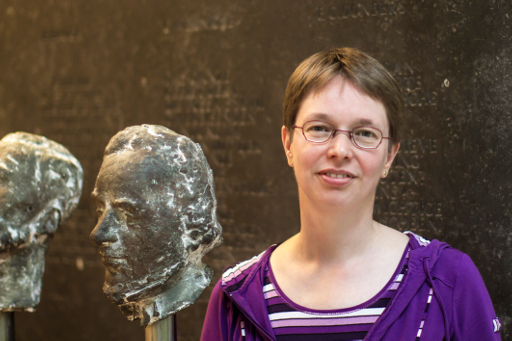Listening Cherry 03 - Ernestus - word cloud

Mirjam Ernestus.
Last year I attended a phonetics workshop at Cambridge University where the main speaker was Mirjam Ernestus. One of the wonderful things about her research is that she works with recordings of spontaneous speech across a number of languages (Dutch, English and Spanish are just three of them). Another wonderful thing is that she is really interested in reductions of the soundshapes of words, e.g. ‘yesterday’ sounding like ‘yeshay’ - some examples are available here.
In the early weeks of this year I set myself the task of seeking to understand her 2014 paper ‘Acoustic reduction and the roles of abstractions and exemplars in speech processing.’ Lingua 142, 27-41. (Available from her website here all references below are to the pagination of her website version). I thought it would be a matter of a couple of hours reading, but actually there was so much to learn and so many other papers to look at, that it took me much longer.
I had hoped, in my reading, to find that psycholinguistics had ‘cracked’ the way that L1 listeners perceive and understand words in normal spontaneous speech, with all its reductions. But apparently not - Mirjam Ernestus tells us that the field is only beginning to address the this issue:
This phenomenon of acoustic reduction has received very little attention in the linguistic and psycholinguistic literature so far (p. 1).
and later
…none of the existing models of speech comprehension can easily account for reduced speech without additional assumptions (p. 13)
So what are these ‘existing models’? She divides the different models into two categories: abstractionist and exemplar-based. The two categories of model have different approaches to the mental lexicon, that part of the brain that stores words - their graphic shapes, their sound shapes, their meanings. The abstractionist model holds that the brain stores just one representation for every word (in the case of speech production and reception it would be an abstract version of the citation-form), and that reduced forms are dealt with by general processes that apply not just to the single word, but to many words.
The exemplar-based models hold that the brain stores many representations for each word (in my terms, many different soundshapes):
… the mental lexicon contains may exemplars of every word, together forming a word cloud. (p. 3).
What I have written is a gross simplification. But I like the idea of a word cloud. I think presenting many different versions of the soundshapes of a word in a clickable format (see, click, hear) would be a nice learning device.
[To be continued]



Leave a Reply